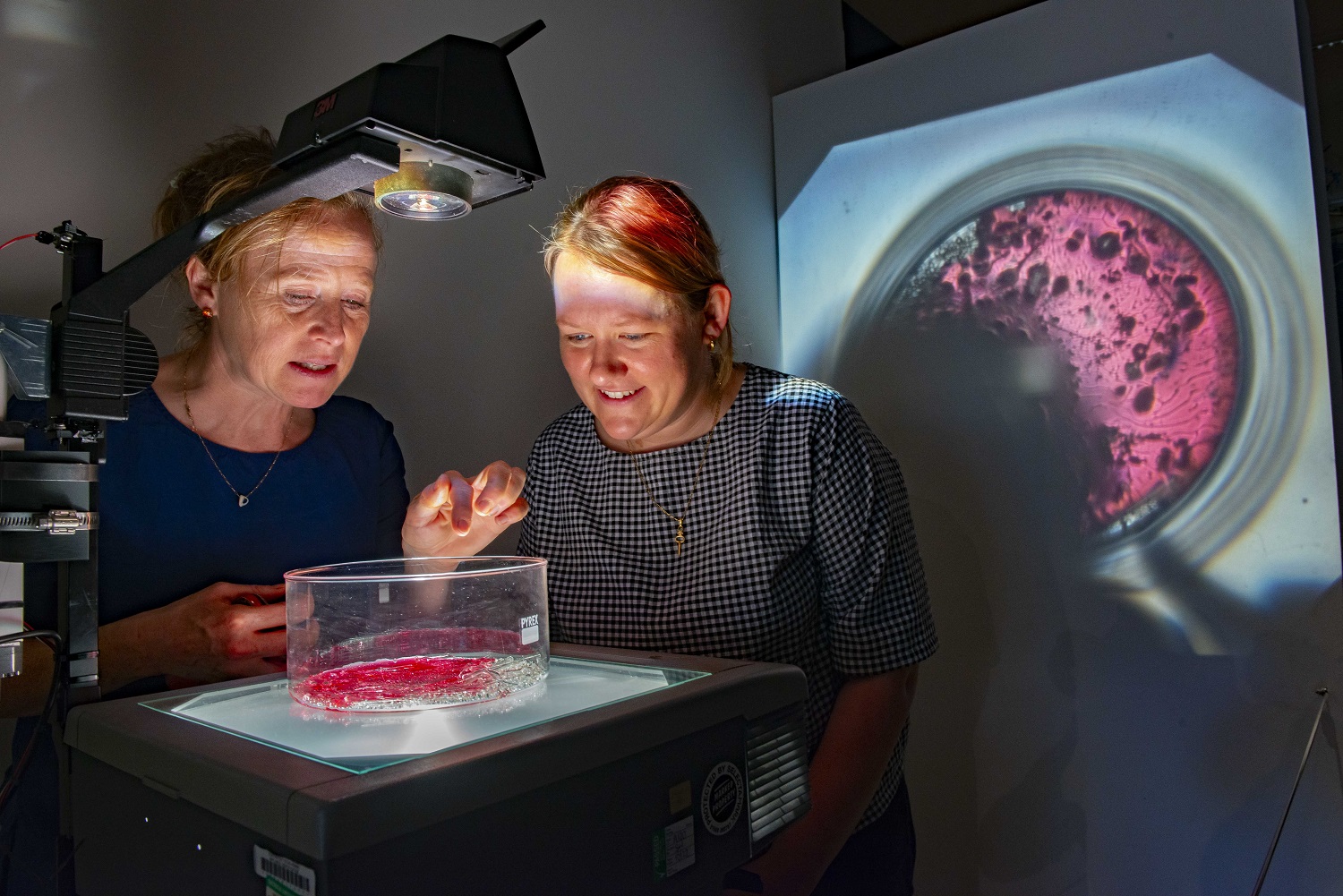Immersive art exhibition explores advancements in dementia research

A new immersive exhibition at Barnsley’s Cooper Gallery and Glass Works Digital Space is exploring cutting-edge dementia research being carried out by Professor Selina Wray.
Currently, around one million people are estimated to be living with dementia in the UK, and one in three people born today will develop the disease in their lifetime unless research delivers life-changing preventions and treatments.
Professor Wray leads a group of dementia researchers at University College London which investigates the underlying causes of dementia and is particularly interested in how a protein that builds up in the brain causes damage in Alzheimer’s disease and frontotemporal dementia.
Art imitates life
Using staining techniques and powerful microscopes, the team has been able to look for proteins involved in dementia diseases to see what might be going wrong.
And, in the new art exhibition, entitled Brains in a Dish, Charlie Murphy’s glass sculptures and installations investigate how advancing techniques in bioengineering are allowing researchers to grow brain cells in a dish.
I'm delighted to be creating new artworks and immersive experiences inspired by Selina’s pioneering dementia research and the powerful imagery and technologies used to investigate what’s happening inside the cells when someone develops a dementia
As an artist she is interested in the tools scientists use for modelling brain development and the impacts of disease on a cellular level.
She has creatively responded to images of the structures and functions of brain cell cultures observed in the lab, with her own skin cells grown ‘in a dish’ as part of the project.
And she has collaborated with engineer, Robin Bussell, to develop robotic lights to animate intricate activities of neural cultures.
Professor Wray said: “It has been really exciting to collaborate with Charlie and Robin on this project and explore new and unique ways to increase awareness of dementia and communicate our research.
“I really like the glass sculptures that Charlie has developed in response to our cells and the images she’s seen.
Understanding the causes
“They’re very beautiful, but on a deeper level they really capture the fragility and the delicateness of the cells that we’re growing, recognising just how fragile they are in our brain.
“By starting with just a small piece of someone’s skin, we can grow these cells from potentially anyone.
They’re very beautiful, but on a deeper level they really capture the fragility and the delicateness of the cells that we’re growing, recognising just how fragile they are in our brain
“Collaborating on this project makes you think quite deeply about each step of the process and what it means to the participant, such as asking for consent and making sure that the people who are participating in the research fully understand what we are trying to achieve from the study.
“It also reinforces the importance of sharing our research with the public – as our research is funded by charitable donations we have a responsibility to show them that we’re performing this work in a responsible and ethical way.”
Murphy adds: “I'm delighted to be creating new artworks and immersive experiences inspired by Selina’s pioneering dementia research and the powerful imagery and technologies used to investigate what’s happening inside the cells when someone develops a dementia.
“Robin and I have developed exciting new ways to illuminate and animate our insights into this important area of research, which we hope will spark interest and connections across a wide range of communities and age groups.”